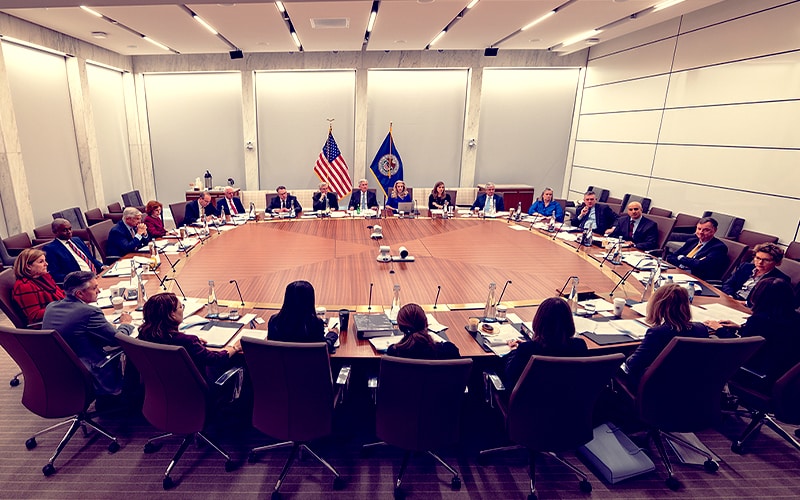A Fed Reserve report from the conference held in June states that the panellists learned that institutional investment in cryptocurrencies is “limited by the lack of a regulatory framework”. The digital asset now is mainly acquainted with CBDC and US dollar digitization.
The idea of issuing a U.S. CBDC did not greatly excite panellists at the Federal Reserve’s first conference on the international role of the dollar.
The Federal reserve’s summary also commented, “That the global currency ecosystem would not have major changes by the current technology used, other factors disturbing such as the rule of law, stability, network effects, and the depth of markets are crucial for the advantages held by dominant currencies”.
The write up, also foregrounded the threats of other foreign currencies especially the Chinese renminbi, pose to the dollar in the international sphere, calling “the scope of cross-border CBDCs still quite limited.
In order to gather opinions from academics, decision-makers, and market professionals on the changing roles of the U.S. dollar, the Federal Reserve Board and the Federal Reserve Bank of New York jointly hosted the first conference on the international roles of the U.S. dollar on June 16 and 17, 2022.
The panellists, including Lorie Logan, raised a number of concerns about the technological aspects of digital assets in light of the potential benefits of CBDCs over the U.S. dollar.
Neha Narula, Hyung Song Shin, and Paul Mackel also spoke, making comments about how technology cannot, on its own, bring about significant changes in the global currency ecosystem. These other factors that play a significant role include the rule of law, stability, network effects, and the depth of markets.
The conference stated, “the research on the major markets has been for Bitcoin which comes from efforts to evade capital controls, particularly China’s stringent regime.
Few commentators and policymakers are concerned over China’s ambition for an international role on renminbi, which attracts enormous amounts of international leverage from the global reserve asset.
Also read:UK & US Partner for Cross-Border Crypto Regulation






